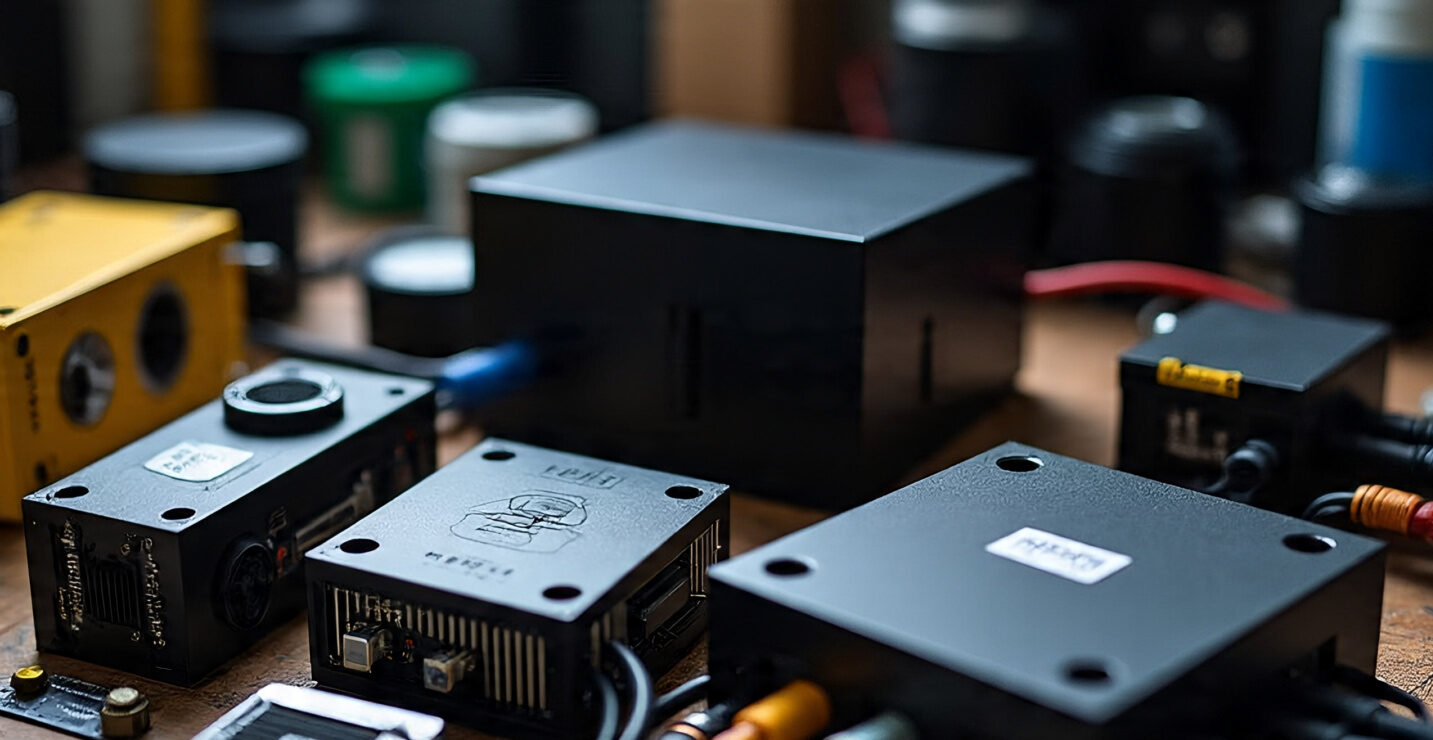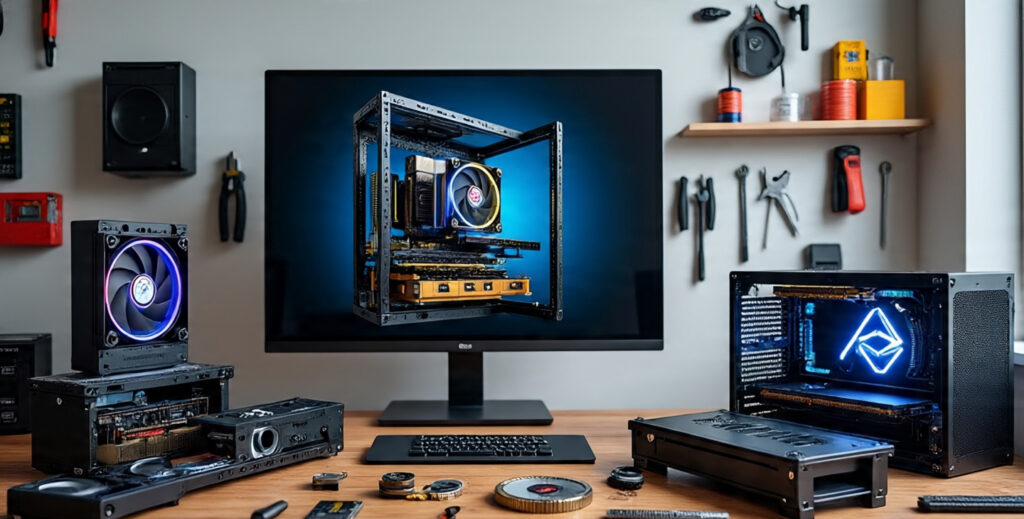Setting up a successful bitcoin mining rig can seem overwhelming for beginners, but with the right bitcoin mining rig setup guide, you can build a profitable operation from scratch. Whether you’re a complete novice or looking to expand your existing mining farm, understanding the fundamentals of rig assembly, hardware selection, and optimization is crucial for long-term success. The cryptocurrency mining landscape has evolved significantly, making it more important than ever to follow proven strategies and best practices. This comprehensive guide will walk you through every aspect of creating an efficient mining setup, from choosing the right components to maximizing your return on investment while minimizing operational costs and technical challenges.
Essential Components for Your Bitcoin Mining Rig Setup
Building a successful mining operation requires careful selection of high-quality components that work together seamlessly. The foundation of any profitable rig starts with understanding what hardware delivers the best hash rate per dollar invested.
ASIC Miners: The Heart of Modern Bitcoin Mining
Application-Specific Integrated Circuits (ASICs) have become the gold standard for bitcoin mining due to their superior efficiency and hash rates. Popular models like the Bitmain Antminer S21 Pro and Whatsminer M56S++ offer exceptional performance, though they require substantial initial investment.
When selecting ASIC miners, consider factors such as hash rate (measured in terahashes per second), power consumption (watts), and energy efficiency (joules per terahash). The most profitable miners typically offer the best balance between these metrics while maintaining reasonable purchase prices.
Power Supply Units and Electrical Requirements

Mining rigs consume significant electricity, making power supply selection critical for both performance and safety. Industrial-grade PSUs with 80+ Gold efficiency ratings help minimize energy waste and reduce operational costs.
Calculate your total power requirements by adding up all component consumption, then add a 20% buffer for safety. Most serious miners install dedicated electrical circuits with appropriate amperage to handle continuous high-power loads safely.
Step-by-Step Bitcoin Mining Rig Setup Guide
Phase 1: Planning and Preparation
Before purchasing any equipment, assess your available space, electrical capacity, and cooling requirements. Mining generates substantial heat and noise, so choose locations with adequate ventilation and consider noise levels if operating near residential areas.
Create a detailed budget that includes not just hardware costs, but also electrical upgrades, cooling systems, monitoring equipment, and ongoing operational expenses like electricity bills.
Phase 2: Hardware Installation and Configuration
Start by assembling your mining frame or rack system to house multiple ASIC units securely. Ensure proper spacing between units for airflow and maintenance access.
Connect power supplies to each mining unit, following manufacturer specifications exactly. Improper power connections can damage expensive equipment or create safety hazards.
Phase 3: Network Configuration and Pool Setup
Configure your internet connection with sufficient bandwidth and low latency. Mining requires constant communication with mining pools, making stable connectivity essential.
Join reputable mining pools like F2Pool, Slush Pool, or AntPool to combine your hash power with other miners and receive more consistent payouts. Configure your mining software with pool credentials and optimize settings for maximum efficiency.
Advanced Optimization Techniques for Maximum Profitability
Cooling and Environmental Control
Implement effective cooling solutions to maintain optimal operating temperatures. Industrial fans, exhaust systems, and even immersion cooling can significantly extend hardware lifespan while maintaining peak performance.
Monitor ambient temperatures closely, as excessive heat reduces efficiency and can permanently damage sensitive components. Many successful miners implement automated cooling systems that adjust fan speeds based on real-time temperature readings.
Mining Software Configuration and Monitoring
Choose mining software that offers comprehensive monitoring, automatic failover capabilities, and remote management features. Popular options include CGMiner, BFGMiner, and proprietary manufacturer software.
Set up monitoring dashboards to track hash rates, temperatures, power consumption, and profitability metrics. Many miners use platforms like Minerstat or Awesome Miner for centralized fleet management.
Electricity Cost Management
Negotiate better electrical rates with utility companies, especially for industrial or commercial accounts. Some miners relocate operations to regions with cheaper electricity or renewable energy sources.
Consider time-of-use rates and schedule intensive mining during off-peak hours when electricity costs are lower. Smart power management can significantly improve overall profitability.
Common Mistakes to Avoid in Mining Rig Setup
Inadequate Power Planning
Underestimating electrical requirements leads to frequent circuit breaker trips, equipment damage, and safety hazards. Always work with qualified electricians for significant electrical upgrades.
Poor Ventilation Design
Insufficient cooling causes thermal throttling, reduced hash rates, and premature hardware failure. Design airflow patterns that efficiently remove hot air while bringing in cool replacement air.
Security Oversights
Mining rigs represent valuable targets for theft. Implement physical security measures, secure network configurations, and regular backup procedures to protect your investment.
Legal and Regulatory Considerations
Research local regulations regarding cryptocurrency mining operations. Some jurisdictions have restrictions on residential mining, noise ordinances, or special licensing requirements for commercial operations.
Understand tax implications of mining income and equipment depreciation. Many miners work with cryptocurrency-specialized accountants to optimize their tax strategies legally.
For comprehensive regulatory guidance, consult resources like the Coin Center website, which provides updated information on cryptocurrency regulations worldwide.
Maintenance and Troubleshooting Your Mining Operation
Regular Maintenance Schedules
Establish routine maintenance procedures including cleaning dust from components, checking connections, updating firmware, and monitoring performance metrics. Preventive maintenance extends equipment life and maintains optimal efficiency.
Performance Optimization
Continuously monitor and adjust mining parameters based on market conditions, difficulty changes, and equipment performance. Regular optimization ensures maximum profitability over time.
[Internal Link Anchor Text Suggestion: “cryptocurrency mining profitability calculator”]
Scaling Your Mining Operation

Expansion Planning
Plan for growth by designing scalable infrastructure from the beginning. This includes electrical capacity, cooling systems, and physical space that can accommodate additional equipment.
Industrial Mining Considerations
Large-scale operations require different approaches including industrial electrical services, commercial cooling systems, and specialized facility management. Consider partnering with data center providers or purpose-built mining facilities.
Conclusion
Successfully implementing a bitcoin mining rig setup requires careful planning, quality components, and ongoing optimization. By following this comprehensive guide, you’ll be equipped to build and maintain a profitable mining operation that can adapt to changing market conditions. Remember that mining is a long-term investment requiring patience, technical knowledge, and continuous learning.
Ready to start your mining journey? Begin by researching current hardware prices, calculating your local electricity costs, and planning your space requirements. With proper preparation and the right bitcoin mining rig setup guide, you can join the network of miners securing the Bitcoin blockchain while generating potential profits.


